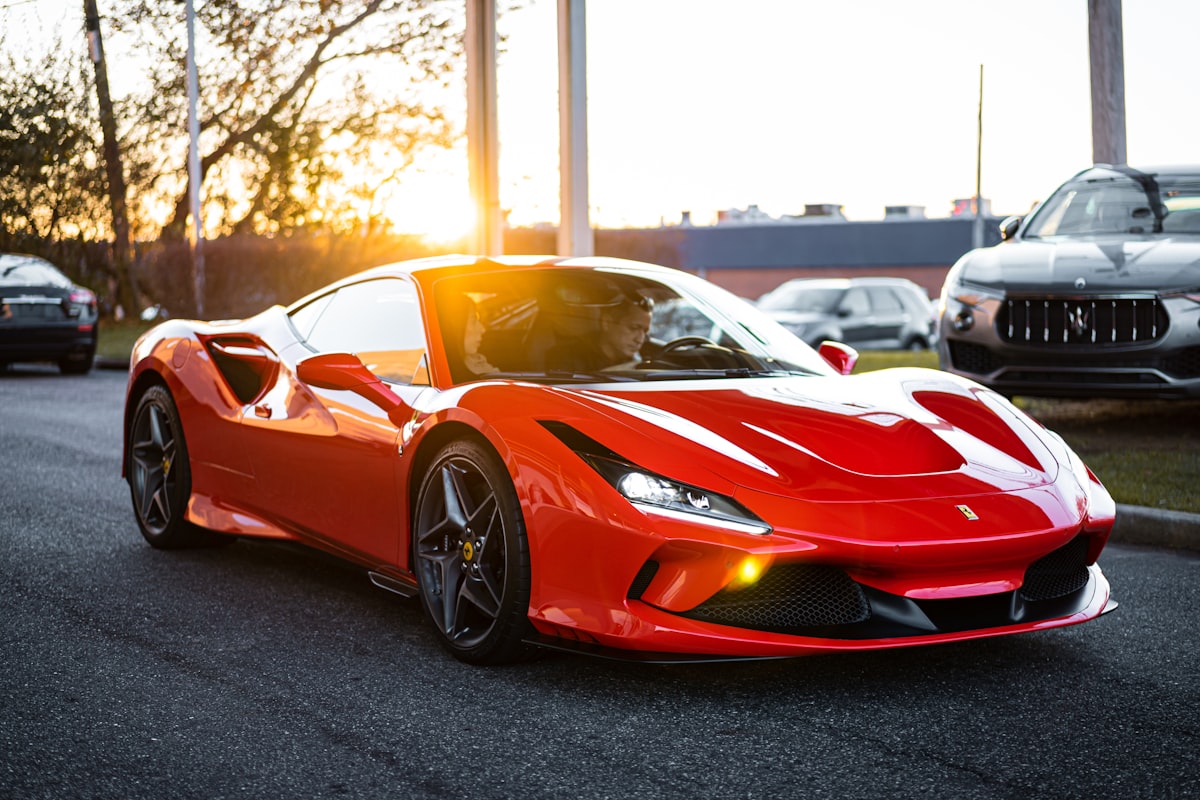Cameron & Tyler Winklevoss on Gemini & Bitcoin's Future

RR: Thank you Cameron and Tyler Winklevoss for joining us today. Between Bitcoin and social networking, these brothers have been behind two of the greatest venture capital investments in the history of the planet.
WT: Thank you for having us.
RR: Most of our readers either own or want to own Bitcoin. And their first question is what is the end goal? Is this going to supplant the US dollar? Where do you see Bitcoin in 50 years?
WT(T): It's a great question. We think the end goal for Bitcoin is disrupting gold. We think of Bitcoin as gold 2.0. If you look at the qualities that make gold valuable, Bitcoin matches or does better on all those qualities across the board. Gold is actually scarce in supply, but Bitcoin’s supply is actually fixed. Gold is portable — you can carry it around — but Bitcoin works like email. If it's gold 2.0, its market cap should be the market cap of gold, which is 9 trillion. Today Bitcoin’s market cap is around 400 billion dollars, so if there's something like a 25X from here. Bitcoins disrupt gold and have a $9 trillion market cap, so that's our long-term thesis. We've been talking about this for the last eight years when we first bought Bitcoin. I haven’t checked the price of Bitcoin today, but let's say it's $22,000. If we're right, each Bitcoin would be worth $500,000. So, $22,000 is still actually a pretty big buying opportunity.
RR: Do you see Ethereum and XRP as analogous to silver and copper? Relative to bitcoin as gold?
WT(C): We don't. We think Ethereum is this decentralized operating system in the cloud, and XRP is trying to be like a payments rail. I don't think it's gotten a lot of uptake and it's trying to solve a different problem than Bitcoin, which is really hard money. The easiest way to analogize it is software gold. If gold is hardware, it's been around for thousands and thousands of years. Bitcoins is really that software version built purpose built for the Internet, and sending that kind of value through the pipes that we use on the Internet.
RR: What do you feel about tokens & stable coins?
WT(T): Stable coins are interesting. It's the concept of bringing dollars onto the blockchain, and like we mentioned, Bitcoin is an emergent value. It is like gold, [and] you don't want to spend it because it depreciates— just like you don't want to spend your Amazon stock because the value still goes up if you believe in the company. You want to spend things that lose their value to inflation over time, so the dollar is a good example. It slowly loses its value, so you don't want to sit on dollars or put them in your mattress because you lose your purchasing power over time. Since the 70s, the dollar has lost 90% of its purchasing power whereas gold during the same time period appreciated 23X. You want to spend dollars like currencies, and if you want to spend them on a blockchain, then you've got to tokenize and wrap them and then you can send them around the blockchain. It's really about bringing dollars on the blockchain, which compared to hard money like Bitcoin, is really apples to oranges just because of the different nature.
RR: What do you say about something like Ferrari where we have a limited supply, a fantastic demand and they can be sold. Could you see Ferrari as a hybrid Bitcoin gold? And that Ferraris could eventually be some type of very large currency pocket?
WT(C): Do you mean the properties of a Ferrari being liquid and almost near money in the sense that if you buy into one of them, you can sort of sell out pretty quickly. It probably retains values if that is what you're referring to there.

RR: Exactly. It is a safe place to store value. The big worry with Bitcoin that we found at Rebellion is that if I put $20,000 in a Bitcoin cyber wallet, what are the chances of a Russian hacker coming and taking my wallet away? What's your comment on this?
WT(C): Right, this is a really good question. A classic store of value would be real estate, but obviously the challenge with real estate is the transaction costs. That sales process is not quick, whereas with Bitcoin, you can move in and out millions and millions of dollars every day, and not really move the market and have a lot of slippages. That brings us to the hacking question, and that's one of the reasons why we built Gemini — our cryptocurrency exchange and platform — to create a really safe and simple way for people to buy, sell and store bitcoin.
WT (T): To be clear, a Bitcoin wallet on the blockchain has never been hacked. What happens is that people lose their private keys. They store them on their computer, and their computer gets thrown out or someone fishes them, just like someone can fish your email login credentials. Or maybe someone tricks someone into giving them their private key, but the idea of someone hacking a private key or guessing it directly has never happened, and is virtually impossible
RR: Very interesting to know.
WT(T): What happens is the companies on top of it: like the banks they go under. Right? Not the currency itself. Mt. Gox famously was hacked, we actually don't know if the guys operating it lost their key or if they got hacked as a company, but that sits on top of the protocol, which is very different right from the protocol layer. It takes a lot of expertise to store a bar of gold even in your own apartment, because what if the plumber comes over. You have to get a safe, and then they can draw from the safe. Oftentimes, people offload that to a bank, but not all banks are pretty equal. You offloaded to a trusted bank that is regulated, and that's what we've done with Gemini. We're a New York Trust Company, and we're regulated. We have security experts, and we solve this problem. Offloading that security problem to us (we think) is a great idea, but there are a lot of exchanges out there that do not have licensing, and do not follow the procedures that we do.
RR: That was my point about the Ferrari. The capacity for fluidity with transactional value. With Bitcoin, you can actually travel to Japan and use it to buy hot dogs, your airplane ticket, or your ticket to a show, whereas if you have a Ferrari and you stored value there.
WT(C): Right. It's also not very divisible. Aside from the Ferrari, art is another great way to transfer, or carry, or store a lot of value. Assuming you pick a blue-chip artist that isn't valuable and or increasing, I think the challenge with the art is its 1 unit. If you buy a Warhol, you've got to sell that Warhol to cash it out. Again there's transaction costs, there's insurance, and there's a lot of overhead and friction in that market that doesn't exist with a fungible store of value like Bitcoin, which is really near money and divisible up to like 100 million pieces. So if you look at the store of value properties that Tyler was mentioning earlier, it equals or betters gold and art and all those classic stores of value in many many ways.

WT(Tyler): That's what Paul Tudor Jones is saying, he believes in the Bitcoin gold 2.0 store. In the 70s, one of his famous trades was gold to hedge against the high inflation rates in the 70s. Today with all the money printing and stimulus in debt, he thinks that trade is Bitcoin. You're seeing others like Stan Druckenmiller, other hedge fund legends follow suit with the same “Bitcoin as gold 2.0” thesis.
RR: The US dollar is constantly losing value every second we speak here. The amount of printing that's going on with the dollar, and many other currencies is just absolutely insane. When you get to 0% interest rates, there's really no way out in fact the ideal economy is one with much higher interest rates. A few things I could discern from this textbook was that in fact an economy needs higher fixed income rates not a 0% rate. It makes it much tougher for pension funds to fund themselves when they have 0%, plus it kills the banks model so I saw you guys did a deal with Paul Demarais’ Canadian Robo Advisory Wealthsimple. Can you speak to that?
WT(T): Yeah sure. We know Paul actually from our days at Harvard. Great guy. I don't have the details. I didn't work on that specifically but we've integrated with the platform so that they can use Gemini to buy, sell, and store cryptocurrencies. So, a lot of people don't want to reinvent the wheel that we've already built. It's very hard to custody digital assets. It's very hard to build an exchange matching engine, so when we say Gemini is an exchange and custodian. What that means in cryptocurrency land is that we're basically four companies, so each in equities you have E-Trade as the broker dealer. You have NASDAQ got some matching engine. You have D2C that clears. Your State Street that custodies. In cryptocurrency, in Gemini, all these four businesses are vertically integrated into one. So we take the orders, we match them, we clear them, we settle them, and we customize them. A lot of people want to plug into that infrastructure to give their clients exposure to cryptocurrency. Because we're customer facing, we're also doing the KYC, so it's like a bank account. It's all of those different things, and so companies simply can plug into our platform, use our software under the hood, and give that access to their customers.
WT(C): Another good example is there's a fund called Tree-IQ that trades on the Toronto Stock Exchange. They use us for custody of their funds, so that (it's sort of a fund) is basically the closest thing to an ETF trading in Canada. I think actually you can get it in a lot of US brokerage accounts, but they plug into the custody piece of our stack, where (as well) simple plugs into both the exchange and the custody piece of our stack. So, that is the B2B model of Gemini. If you have a fund and you need a custodian or you need to source liquidity, you can use Gemini. Or customers can come directly to Gemini.com and just on board like they do any online bank or brokerage in NYC. And then you can just buy, store, and sell directly on our platform.
Edited by Avhan Misra